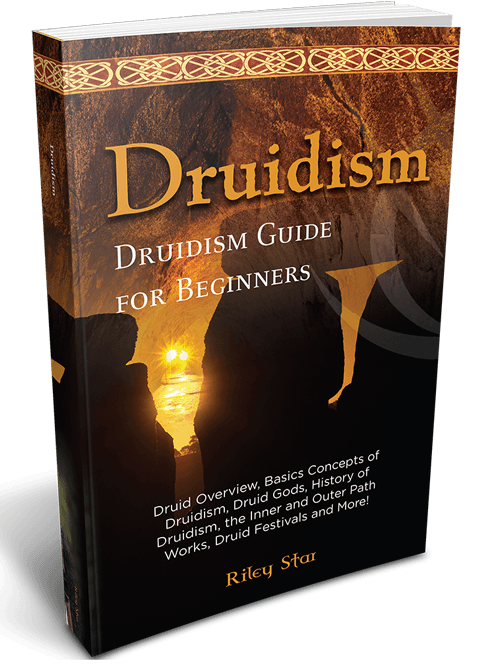TABLE OF CONTENTS
- Chapter One: History of Druidism 9
- Druidism in Ancient History 10
- Druidism in Europe 12
- 18th to 20th Century Druidism 15
- The Rise of the Neo – Druids 18
- Chapter Two: Understanding Druidry 21
- What is Druidry? 22
- Who Are the Druids? 24
- Druidism and Christianity 26
- The Druids and the Celtic Culture 27
- Chapter Three: Druidry and the Awen 31
- Significance of the Awen in Druidism 32
- What does the Awen Represent? 33
- Chapter Four: The Gods of Druidism 37
- What are the Druid Gods? 38
- Who are the Druid Gods? 39
- Chapter Five: The Ancient Druids 49
- What are the Ancestors of Druidry? 50
- The Orders of Druid Priests 52
- The First Order: Druid Proper 53
- The Second Order: The Bards 53
- The Ovates 53
- Honoring the Druid Ancestors 54
- How to Honor Ancestors of Druidism? 56
- Chapter Six: Sacred Space and Altar Creation 61
- Significance of Altar Creation 62
- How to Create an Altar? 63
- Decorations for a Druid Altar 65
- Chapter Seven: Druidry and Meditation 67
- The Practice of Druidry in Meditation 68
- The Process of Druidic Meditation 70
- Druidic Meditation Guidelines 72
- The Fourfold Breath Method 74
- The Fourfold Breath Method Guidelines 76
- Your Body Rhythm 78
- Chapter Eight: The Druid Festivals and Seasonal Rites 81
- The Cross Quarter Festivals 83
- Beltane Festival 86
- Lughnasadh Festival 87
- Festival of Imbolc 90
- Candlemas Festival 91
- Vernal or Spring Equinox 92
- Midsummer or Summer Solstice Festival 93
- Autumn Equinox 93
- Winter Solstice or Yule 94
- Chapter Nine: Inner and Outer Path Working 97
- Developing the Inner and Outer Path Work 99
- The Inner Path Work 101
- The Outer Path Work 103
- The Otherworld 104
- Important Qualities of Druids 106
- Dreams and Our Inner Path work 109
- Chapter Ten: Walking Your Own Path 113
- Neo – Druidism 114
- Conclusion 116
- Photo Credits 119
- References 121

